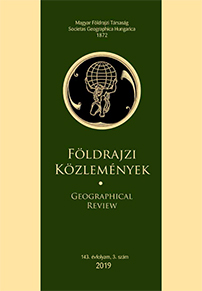Rural Restructuring and the Precariat From the Viewpoint of Manorial Settlements
Abstract
In pre-World War II Hungary the countryside was dominated by large estates. Estates built manors (puszta or major) at the centre of their agricultural territory, usually on the outskirts of neighbouring communities. After World War II, state farms and co-operatives became stakeholders in most of the manors. These companies were privatised or abolished after 1990, resulting in high unemployment rates on the local scale. These processes have already been studied by a number of scholars; what this paper aims to do is revisit the available results in light of two concepts: the precariat and rural restructuring. My argument is that these concepts might add new viewpoints to the interpretation of processes on the local scale by placing them in national and international contexts. The precariat seems to be present throughout the whole twentieth century in these settlements, with working and living conditions dependent on the stakeholders. If we approach the concept from the viewpoint of world systems theory, it can be seen that both the large estates before WWII and the state socialist agricultural companies after were strictly connected to international markets, which made life even more precarious in manors. Rural restructuring can be defined as the transformation of three spheres: the state, the economic system, and civil society. Looking at these processes throughout the twentieth century, it is evident that manors underwent restructuring in the second half of the state socialist period, with a more radical transformation beginning in the 1990s.
Copyright (c) 2019 György Mikle

This work is licensed under a Creative Commons Attribution-NonCommercial-NoDerivatives 4.0 International License.



